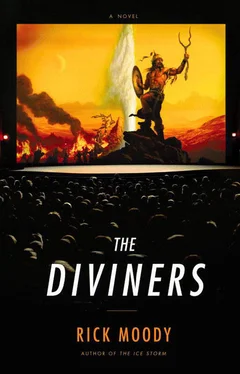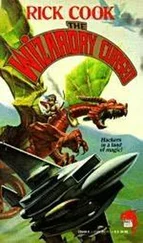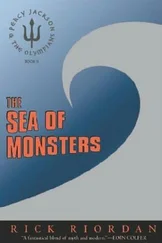Voices call out about the weather. Chance of showers. Drizzle approaching.
The worst of all possible things, which is that she hears her daughter’s front door closing, hears steps in the stairwell. The lumbering tread. She’s in her pajamas and coming downstairs to look in on Rosa. How could the great-granddaughter of magicians be such a dinosaur! Her grandfather, her great-grandfather, they were revered men of the village. They turned the lands of the poor and the afflicted to good. Gypsies followed them wherever they went.
The Viscusis came to the barren parts of the land with special tools, divining rods. These tools had been blessed by a sympathetic priest. The Viscusis said some powerful magical phrases, and then when they dug in that spot, they found water. Clean water, pure water. All the wells in their town, those wells had been selected and dug by Viscusis, so the Viscusis stood for water, for things growing, for cultivation, for husbandry. The wine that you drank from that town, the town where she was from, where her father and her grandfather were from, that wine came from grapes that were nourished by the wells dug by Viscusis.
Rosa’s mistake was marrying Claudio Meandro, who was only good for one thing, and that was drinking up the product. Well, he was good for other things, too, for whoring and never bringing home a wage and abandoning his wife and daughter. She can hear her daughter wheezing, even with the television on. The rudeness of her daughter’s breathing, which is the husky breathing of a chubby woman, the breathing of someone who is undersea diving. And that was just her coming downstairs.
“Did you feed the cat?” her daughter yells from the stairwell.
“Don’t come in here!” Rosa calls from the bathroom.
“Why do you have to chain the door?”
Her chubby hand now on the other side of the doorknob.
“Why is this chained?”
“I’m in the bathroom!” Rosa calls, and the exertion prompts a fresh stream of her insides. “Don’t come in.”
“Are you okay?”
“If I needed you in here with me I’d call you.”
“I heard a crash.”
“You did not.”
The neighbors in the next building will be able to hear the shouting through the cement, through the brownstone, through the Sheetrock, through the plastering. She gets up off the john now and crouches; her legs and her bottom are covered with the mess of her condition, she’s a mess, and she tries to flush it away, again; she wants all of this gone, this indignity of the present, feminine-itch commercials, television programs about people on some island eating rats to stay alive so that their pictures might appear in magazines devoted to the subject of weight loss. She will brain that daughter if she comes in here. How did she give birth to a fat woman?
Her grandfather was summoned by the mayor of the village, a man with guns and power. The mayor said, I’m not getting a crop to grow here on my lands while you have many crops growing on the lands you oversee. You are harvesting all the crops, and I can’t bring my grapes to market, and what I want is for you to bring your magical spells to my land here. I want you to make my lands fertile. Or else I’m going to run you out of town, and that will be the end of your vineyard. And your kids and your kids’ kids, they’ll be forgotten here, they will be outlaws, and the name of Viscusi will be forgotten here for all the rest of time. This was after the war, understand, and there was a lot of ill humor around. And there was also the matter of the well at Pienza, which owed its fame to Pius II. The mayor was outraged, completamente oltraggiato, that none could design a better well than the one at Pienza.
“I can’t stay here and be after you all morning, Mom.”
“Give someone some peace and quiet if they need it.”
Rosa tries to flush away the evidence one more time. A serious tactical error. Now the worst possible thing happens, which is that the merda begins to come up, the water swirls ominously, and soon what will not go down through the drains, out to the sewage treatment plant, it comes up, backs up, and she can hear herself crying out in dismay, but she hears it almost as if it is happening to someone else. She doesn’t know what’s in her, what worm or parasite causes her to suppurate like this, part of her pancreas, part of her bowel; there’s that moment of hesitation, that meniscoid pause in the process of boiling up, before it swells over the lip of the toilet —
“Are you listening about the election?”
— and begins to flood the floor. The insides of her twisting and burning. And that’s when the headache starts, she can feel it beginning to start, the headache is upon her now, too, the Technicolor. She is beginning to have the vision, the phantasms that precede the next onslaught of pain, and the vision is of her grandfather and her grandfather’s father, and they are desperate men, because they cannot find the water in the fields belonging to the mayor. They cannot find the water. After dusk, after church, they are wearing the clothes they wore to church, and there is the light of the old country, the light that inspired those old masters, the perfect light of the Tuscan country, and they go out into the fields, past a matrimonial procession winding up the streets toward the town square, and the wedding is making its tortuous way toward the well in town, a beautiful old well where the men and their wives will pour out long drafts of water, and they will drink wine and they will drink water, and they will revel and dance. Her father’s father and grandfather are not in the wedding party, they are working, and they have the polished sticks of their profession, diviner’s wood, this wood that for generations has made for good crops for the villagers of their town, and all they have to do is find one single well on this property. They have done it many times.
Rosa Elisabetta takes off her sweater and pulls the nightgown over her head. There are only glimpses of her in the mirror above the sink, a mirror veined with flaws, a translucent elbow, a swollen knob at the bottom of it, here are the gray tendrils of her curls around the severe lines of her chin and cheeks; the light moves over her and through her in her nakedness, the light is an affliction, she bears up under it, because she is a beauty even as an old woman, the men will clamor to lie with her, and she climbs into the bathtub and leans her striated face against the porcelain of the side of the tub; she knows the feel of the polished wood of the divining rod, it is the wood of the umbrella pine and it has been polished and tanned until it is like the hide of a cow; she knows that creation of this divining rod is controlled by emissaries from the heavens. A vision is upon her and this is its material.
Her grandfather had the women chasing after him all the way to his death. The women followed after him and his father, even that night, le amiche abandoning a wedding party and its black sedans, jumping out of moving cars, and they were following her grandfather and his father as they worked their way across the farm belonging to the mayor. A procession of diviners. The men were working their way across the fields, with the sticks of their trade, but they were finding nothing. They had begun to sweat. They had begun to worry. The ragazzi trailed the grandfather and the great-grandfather, across the fields, the ragazzi already drinking wine. No one knew where this drinking wine would lead, except that at the end of drinking wine, the men would find the water, because it was always so. And there would be a bonfire, and the hermit who lived in a shack by the railroad tracks would bring out his concertina and his pet rat. This was the one field between here and the city where there was no water. They’d never before faced the possibility of failure, the Viscusis, because they knew Gypsies. That’s how the story went, thought Rosa Elisabetta, in the bathtub, her soiled clothes on the floor.
Читать дальше












